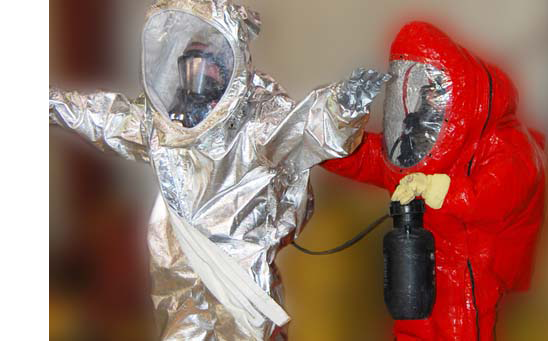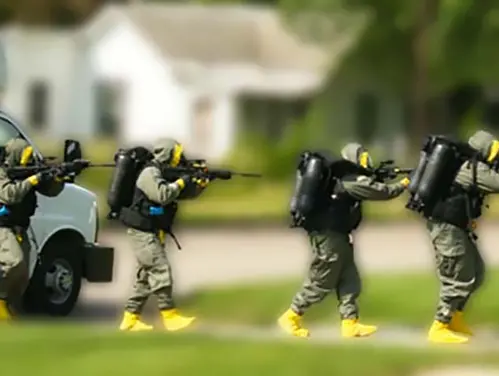On this page...
Iowa's Emergency Response Teams
HSEM has partnered with local governments and private-sector organizations to develop specialized capabilities that may be utilized during times where local capability doesn’t exist, or has been exhausted. These emergency response teams have been established to support all Iowans during times of need. Iowa’s emergency response teams are recognized under Code of Iowa 29C, and are deployed as a resource to supplement and enhance disrupted and overburdened local emergency and disaster operations. These teams may also be deployed to provide assistance to other states under the Emergency Management Assistance Compact.
HSEM does not directly operate any of these teams. Rather, the State has put into place memorandums of understanding (MOUs) with host organizations that enable HSEM to contract with the teams to respond if the need arises. Individually, the teams may provide support to other jurisdictions within the state through separate local agreements, without assistance from state government.
Back to topExplosive Ordnance Disposal Team (Bomb Squad)
The Explosive Ordnance Disposal Team (EOD, or “bomb squad”) cadre provides statewide coverage for the detection and disposal of explosive weapons. This group of highly-trained professionals is built on a foundation of seven nationally accredited state and local teams: Linn County/Cedar Rapids/Marion, Johnson County, Blackhawk County, Quad Cities, Pottawattamie County, Des Moines, and the State Fire Marshal.
These teams are fully operational and can be deployed to any location in the state. All bomb squad technicians are required to be trained in a rigorous three-month program, Hazardous Devices School, at the Redstone Arsenal in Huntsville, AL. Each team is comprised of at least two trained bomb technicians.
Although there is often much interest in joining these teams, it is extremely competitive and bomb techs are chosen from the existing members of each local police department. Officers may serve in their departments for several years before getting the opportunity to train as a bomb technician.
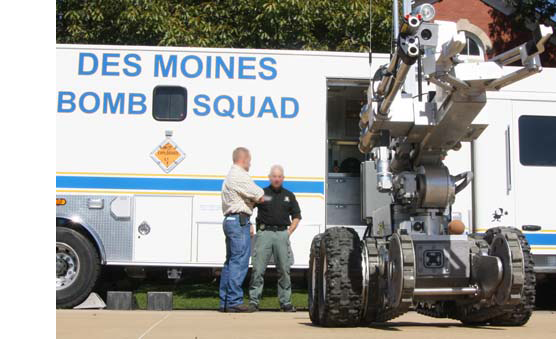
Iowa All Hazards Incident Management Team (IA-AHIMT)
Iowa’s All Hazards Incident Management Team (IA-AHIMT) is a cadre of multi-agency, multi-jurisdictional professionals, activated to support incident management at large or complex incidents, disasters or special events. The IMT has been developed at the state level to provide support to local officials who become overwhelmed during a long-lasting disaster event. The team serves in a support function, filling in for fatigued personnel and providing technical advice in areas where specialized expertise is needed. Through the local county emergency management agency, a local incident commander may submit a request to HSEM for the deployment of the Iowa AH-IMT for incident support.
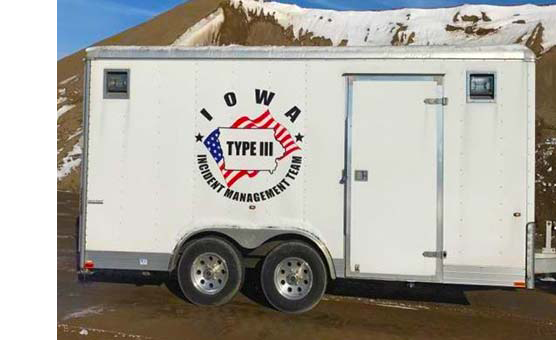
Urban Search and Rescue (USAR) - Iowa Task Force 1
Iowa Task Force 1 (IA-TF1) is Iowa’s Urban Search and Rescue (USAR) team. IA-TF1 team members have been trained and equipped to locate, rescue and provide initial medical stabilization to victims in confined spaces, including collapsed structures, grain silos, mines and collapsed trenches. The team is also trained in swift-water rescue and wide area search.
In addition, the team may loan equipment like generators, light kits, and communications equipment for local responders. Iowa Task Force 1 was built using existing capabilities and resources, is comprised of the Sioux City and Cedar Rapids Fire Departments, and draws additional membership from fire and rescue professionals from across Iowa.
Anyone interested in joining Iowa Task Force 1 should visit the IA-TF1 website.
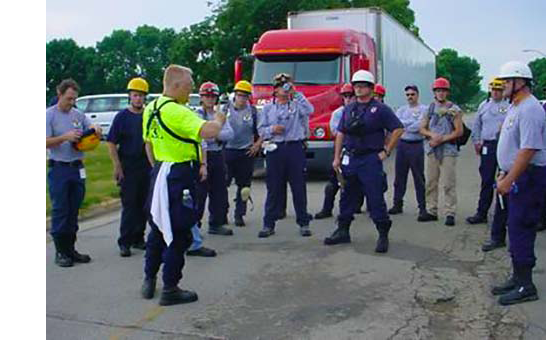
Special Weapons and Tactics (SWAT)
Iowa has built a Special Weapons and Tactics (SWAT) core group of six separate tactical teams capable of handling high-risk situations which require special weapons or extraordinary special operations. Iowa now has statewide coverage for these types of incidents with four local and two state teams.
The local teams are the Cedar Rapids Police Department, Metro Star (combined Des Moines/Polk County area agencies), North Central Iowa Narcotics Task Force (north central Iowa area law enforcement agencies), and Woodbury County Sheriff’s Office. In addition, the Iowa State Patrol provides two teams.
Each SWAT team is made up of at least 12 tactically-trained officers. The teams are chosen from existing members of each local police department or law enforcement agency. Membership for SWAT teams, like bomb squads, is extremely competitive. Officers may serve in their departments for several years before getting the opportunity to join the SWAT team.
Back to topWeapons of Mass Destruction (WMD)/HazMat
Iowa’s Weapons of Mass Destruction (WMD)/HazMat team was established to enhance the capabilities of existing fire department hazmat teams to provide statewide coverage for on-site testing and identifying, assessment and support for render-safe operations involving increasingly sophisticated improvised explosive devices and those that may contain chemical, biological, radioactive, nuclear or explosive (CBRNE) materials.
Fire department hazmat personnel from established departments in Council Bluffs, Davenport, and Des Moines make up the state’s WMD HazMat team. These departments were chosen based on their existing hazmat capabilities.
